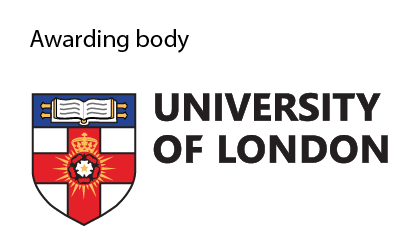CertHE in Common Law - University of London
Certificate of Higher Education (CertHE) in Common Law is a 1 year course designed by the University of London for students who do not meet the entry requirements to enroll on the University LLB Hons Programme but wish to pursue an internationally recognized legal qualification such as the University Of London – Bachelors of Law Programme. It is a standalone qualification in its own right, and also acts as an entry route to the University of London LLB (Hons) Programme without any additional or further qualification.
As a direct entry route to the 2nd year of the University of London Undergraduate Law Programme, the Certificate of Higher Education in Common Law is equivalent to first year University of London LLB (Hons) and students undertake the same modules as LLB (Hons) students. Students who successfully complete the Certificate of Higher Education in Common Law by passing three modules including Legal System & Methods are eligible to transfer in the second year of the LLB (Hons) Programme and continue on as LLB (Hons) students without any additional qualification.
Choose this Qualification
If you do not meet the entrance requirements to pursue University of London LLB Programme (due to Intermediate/O-Level or AS Level qualifications) but you are able to demonstrate the necessary potential and ability to study at degree level.
If you are interested in studying the core modules of English Law but do not want to commit to a full time LLB (Hons) degree.
If you are eligible to enroll onto the degree programme directly but require extra teaching support and additional English Language classes.
Eligibility Criteria
The applicant must normally be aged 18 years or older before 1st October in the year they register with Themis School of Law.
The applicant must meet the minimum age requirement and must have completed any of the following qualifications:-
1- Intermediate Qualification
2- O-Level Qualification
3- AS Level Qualification
4- A Level Qualification but the grades achieved do not satisfy the entry requirements of the University of London LLB Programme
The applicant must pass the University of London’s Online Entrance Test and the Interview with Themis School of Law.
English Language Requirements
Please take note of the Admission Process below:
Applicants wishing to enroll on the CertHE course must complete the Admission Application Form available on themisadmissions.com.
Applicants upon completion of the Admission Form, must submit all relevant documentation to the Admission Committee via email.
Upon submission, applicants will be invited for the CertHE Entrance Test which they must successfully pass to be shortlisted for the Interview.
Once the student has successfully passed the Entrance Test, the student must also pass the Interview with the Academic Committee at Themis School of Law before an Admission Offer is made to the applicant.
Course Modules
The modules studied on the CertHE Common Law are the same as the Level 4 modules of the LLB (Hons) Programme taught in the 1st year. They are as follows:
Contract Law: This module covers the key underlying principles of English Contract Law and includes key topics such as formation of contracts, consideration, privity, breach of contract and remedies for breach of contract.
Law of Tort: The law of tort concerns the civil liability for the wrongful infliction of injury by one person upon another. Negligence is a key topic and other topics include the duty of care; nuisance; trespass; defamation; occupiers and employers’ liability.
Criminal Law: This module is concerned with the general principles of criminal liability, fatal and non-fatal offences against the person and offences against property. Attempts to commit offences, secondary liability and defences also form part of the curriculum.
Legal System and Method: The module is an introduction to the English legal system and describes the distinctiveness of the common law approach as a legal methodology. The module is vital in integrating students into the process of legal research and the understanding of legal reasoning.
Public Law: This module is concerned with the core features of the United Kingdom constitution with key focus on issues governing the relation between citizens and the state, including sovereignty and the division of powers between legislature, executive and administration.

